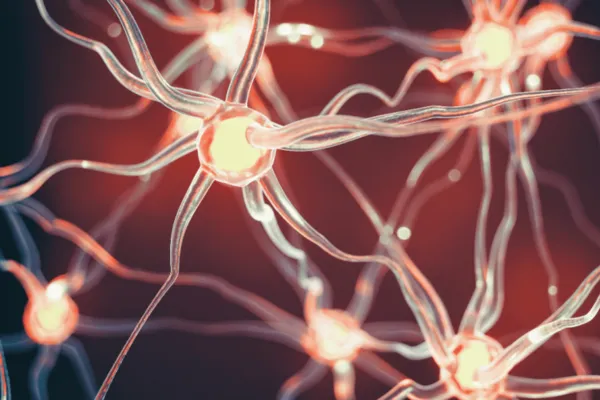
Why it is important to be conscious about what you put in your mouth?: Neurons & Gut Health
The human body is a complex organism that contains various organs, each with a unique set of functions. Recent research has shown that the gut and heart contain neurons, which can affect our mood, emotions, and behavior. This article will explore the implications of the number of neurons in the gut and heart for our health, particularly the importance of being conscious about what we put in our mouth.
Number of Neurons in the Gut
The gut contains approximately 100 million neurons, making it the second-largest concentration of neurons in the human body after the brain. These neurons form the enteric nervous system (ENS), which regulates the digestive process. The ENS can operate autonomously from the brain, but it is also connected to the central nervous system (CNS) via the vagus nerve.
The ENS plays a crucial role in regulating mood and behavior. Studies have shown that individuals with irritable bowel syndrome (IBS) often experience anxiety and depression, which suggests that the gut can influence emotional states. Therefore, being conscious about what we put in our mouth is important to maintain gut health and avoid digestive problems.
Number of Neurons in the Heart
The heart contains approximately 40,000 neurons, which are organized into a network called the intrinsic cardiac nervous system (ICNS). The ICNS regulates the heartbeat and is involved in the body's response to stress.
The presence of neurons in the heart has significant implications for human health. The ICNS has been linked to various cardiac diseases, including arrhythmia and heart failure. Stress can also lead to changes in heart rate and blood pressure. Therefore, being conscious about what we put in our mouth and avoiding stress can help maintain heart health.
Importance of Being Conscious About What You Put in Your Mouth
The gut-brain axis is the communication between the ENS and the CNS. The gut can influence emotional states, and the CNS can also influence the gut's functions. The food we eat can affect gut health, which, in turn, can affect mood and behavior. Eating a balanced diet rich in fruits, vegetables, whole grains, and lean proteins can help maintain gut health and reduce the risk of digestive problems.
The heart is also affected by the food we eat. A diet high in saturated and trans fats, added sugars, and salt can lead to high blood pressure, high cholesterol levels, and obesity, all of which increase the risk of heart disease. Eating a heart-healthy diet rich in fruits, vegetables, whole grains, and lean proteins can help maintain heart health and reduce the risk of heart disease.
Conclusion
The discovery of neurons in the gut and heart has challenged our traditional view of the nervous system and its role in human cognition. The gut-brain axis and the ICNS are both important in regulating bodily functions and mood. Being conscious about what we put in our mouth can help maintain gut and heart health, reduce the risk of digestive problems, and prevent heart disease. Therefore, it is important to pay attention to the food we eat and make healthy choices to promote overall health and well-being.
"The gut-brain axis in health and disease." Nature Reviews Gastroenterology & Hepatology. Mayer, E. A., Tillisch, K., & Gupta, A. (2015).
This review article discusses the role of the gut-brain axis in regulating bodily functions and mood. The authors note that stress can affect gut health and lead to digestive problems, while a healthy diet can promote gut health and reduce the risk of digestive problems.
"The intrinsic cardiac nervous system and its role in cardiac pacemaking and conduction." Journal of Interventional Cardiac Electrophysiology. Armour, J. A. (1997).
This article discusses the role of the intrinsic cardiac nervous system in regulating the heartbeat and response to stress. The author notes that a healthy diet and exercise can help maintain heart health and reduce the risk of cardiac disease.
"The impact of diet and lifestyle on gut microbiota and human health." Nutrients. Lee, Y. K., & Mazmanian, S. K. (2010).
This review article discusses the role of the gut microbiota in regulating bodily functions and the impact of diet and lifestyle on gut health. The authors note that a balanced diet rich in fruits, vegetables, whole grains, and lean proteins can help maintain gut health and reduce the risk of digestive problems.
"Diet, gut microbes, and the mechanisms of health and disease." Cell. Nicholson, J. K., Holmes, E., Kinross, J., Burcelin, R., Gibson, G., Jia, W., & Pettersson, S. (2012).
This review article discusses the role of the gut microbiota in regulating bodily functions and the impact of diet on gut health. The authors note that a balanced diet can help maintain gut health and reduce the risk of digestive problems.
"The effects of diet on the gut microbiome: a metagenomic analysis in humanized gnotobiotic mice." Science Translational Medicine. Turnbaugh, P. J., Ridaura, V. K., Faith, J. J., Rey, F. E., Knight, R., & Gordon, J. I. (2009).
This study investigated the effects of diet on the gut microbiome in mice. The authors found that a high-fat, high-sugar diet altered the gut microbiome and led to metabolic changes, while a low-fat, plant-based diet promoted gut health and reduced the risk of metabolic disease. These findings suggest that a healthy diet can promote gut health and overall health.



